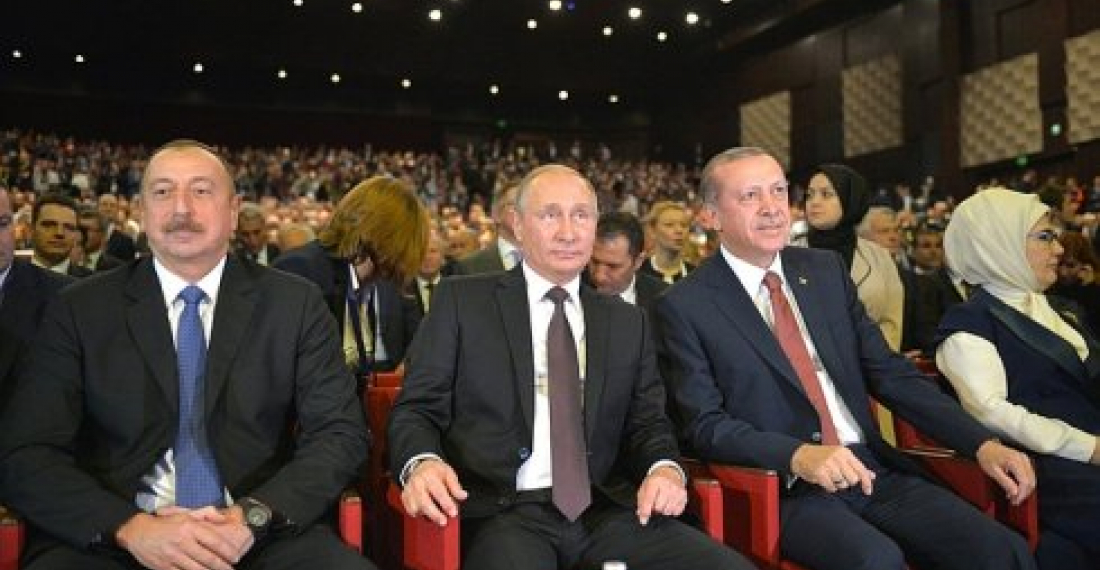Turkey and Russia signed the strategic Turkish Stream gas pipeline agreement on October 10th. The Presidents of the two countries signed the agreement after a meeting on the margins of the 23 World Energy Conference taking place in Istanbul. The pipeline will carry Russian natural gas to Turkey and on to Europe under the Black Sea.
During the signing ceremony with his Russian counterpart Vladimir Putin, Turkish President Recip Tayip Erdogan said ministers and experts will continue to hold bilateral talks after the deal, adding that they will also hold talks focusing on economy, politics, defense, tourism and culture.
The president also said they reached consensus on the acceleration of the process for the Akkuyu nuclear plant.
In addition, Putin also added that the two countries also reached consensus on discount in natural gas prices as a part of the deal. Moscow also lifted restrictions on citrus imports from Turkey
President Erdogan also said they discussed Syria and the Euphrates Shield Operation in detail as well as strategies and cooperation regarding humanitarian aid to Aleppo. Putin said Moscow was on the same page with Ankara about delivering humanitarian aid to Aleppo.
According to the Russian leader, Moscow and Ankara also agreed to intensify military contacts.
The signing of the deal came after a bilateral meeting between Erdogan and Putin who was in Istanbul to attend the 23rd World Energy Congress.
Russia's Gazprom and Turkey's BOTAŞ in 2014 signed a memorandum of understanding (MoU) for the construction of the Turkish Stream gas pipeline, with a capacity of 63 billion cubic meters (bcm) of gas per year from Russia to Turkey across the Black Sea.
However, talks on the project were halted last year after Turkey shot down a Russianair force jet and Moscow retaliated with trade sanctions but since then the two countires have made significant progress to mend relations.
Erdoğan said in August at a joint news conference with his Russiancounterpart that building the gas pipeline quickly was a priority.
This was Putin's first trip to Turkey since a bilateral crisis sparked by Turkey's shooting down of a Russian war plane over Syria last November. He and Erdoğan have met on two occasions since a June deal to normalize ties after the plane crisis - in Putin's home city of Saint Petersburg and then on the sidelines of the G-20 in China.
Meanwhile, also speaking at the event Azerbaijan President Ilham Aliyev said his country's energy investments in Turkey would reach $20 billion.
Aliyev said Azerbaijan and Turkey had built energy infrastructure, such as pipelines, to ensure both countries' energy security.
"On a daily basis, Turkey plays a crucial role in the energy security of the region," he added.
He signaled that growth in Turkey's prosperity is important not only for Turkey as a leader in defining energy policy in the world, but also for the rest of the world.
Aliyev highlighted projects, which have been implemented in Turkey, to transfer Azerbaijan's oil and gas, and said Azerbaijan's gas will be delivered to global markets via four projects under the South Gas Corridor totaling $45 billion in value.
He hailed the Trans Anatolian Natural Gas Pipeline (TANAP) as playing a crucial role in providing energy security in the region.
"We took the first step for the TANAP in 2012 in Turkey, which is a significant part of the South Gas Corridor, under the leadership of Azerbaijan and Turkey. The TANAP is an important agreement and many countries might become a part of this project," Aliyev said.
He also suggested that projects to transfer Azerbaijan's oil via Turkey should be stepped up.
source:commonspace.eu with Hurriyet Daily News
photo: the Presidents of Axerbaijan, Russia and Turkey at the 23 World Energy Conference in Istambul on 10 October 2016 (picture courtesy of Hurriyet Daily news).






